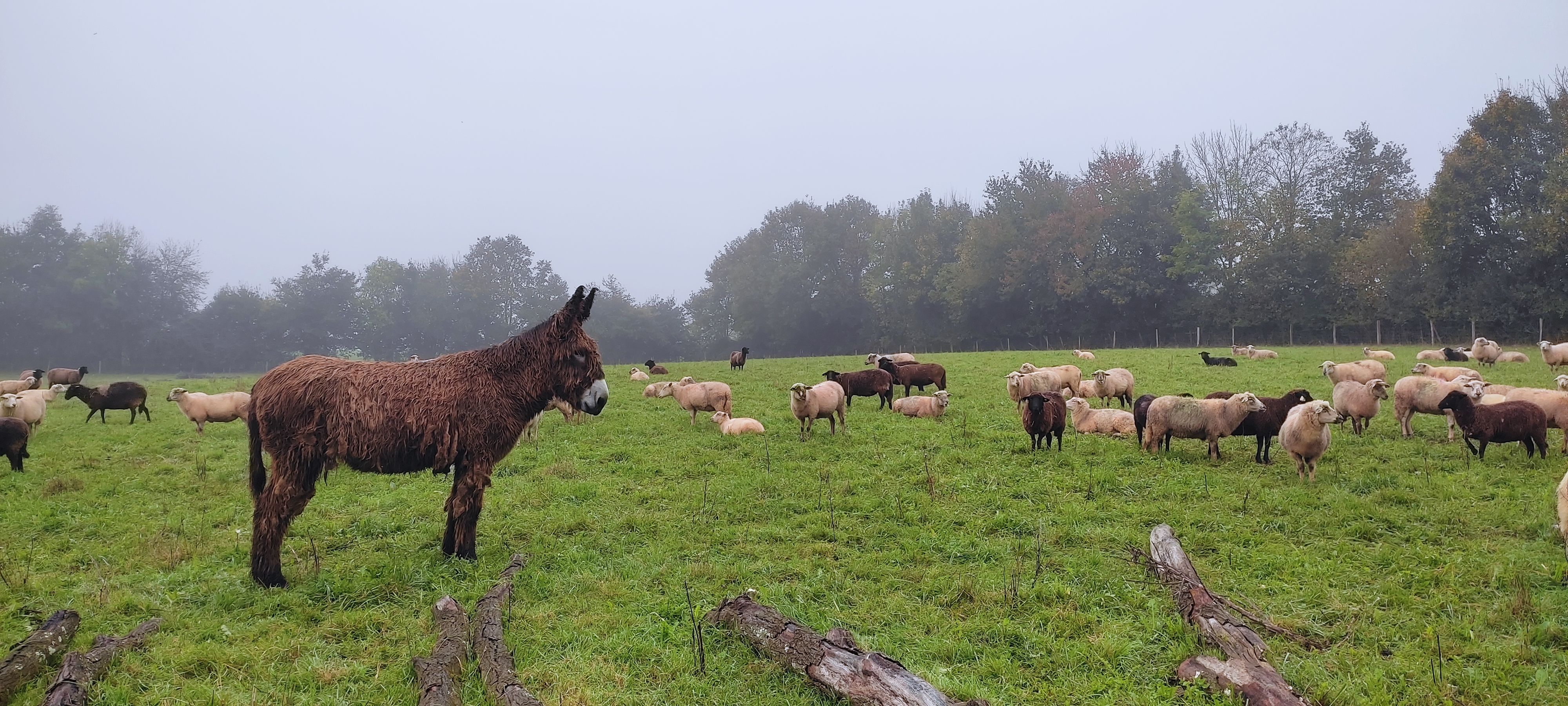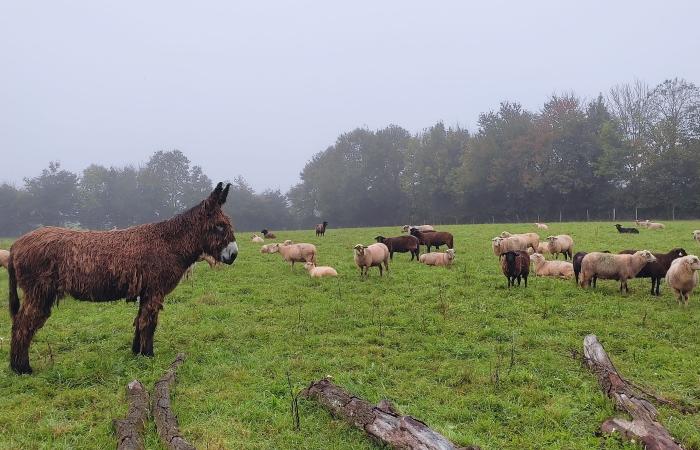7:05 a.m. – Modified: 9:13 a.m. by Tom ROSSI

While the wolf is gradually returning to the West, a breeder from Maine-et-Loire has found the solution to protect his flock of lambs: a donkey from Poitou who does not hesitate to go into “contact” with danger, and it’s effective. Meeting by Tom Rossi.
The wolf is back in the West. A few individuals are circulating in Brittany and the Pays-de-la-Loire region. Good news for biodiversity, particularly for the regulation of wild boars, but which worries some breeders. Not Benoît Huntzinger, che Breton based in Chemillé-en-Anjou, in Maine-et-Loire, found a solution to protect his 160 Belle-Ile sheep, raised in the open air: he called on a donkey from Poitou, or rather a donkey , baptized Castafiore and who was raised within the herd.
A donkey to protect the herd from the wolf
“Equines (horses, donkeys) have a horror of canines (dogs, foxes, wolves), explains Benoît Huntzinger. A horse it waswhen he sees danger. A donkey is a territorial animal. When there is danger, he will first defend his territory. Kastafiore, her territory, she shares it with our sheep. We saw it done and I can tell you that it’s effective! She is the guardian and the sheep know it. They regroup and stand behind Kastafiore who will observe and do what is necessary if necessary.”
What to repel a wolf? “Some tell me that it wouldn’t last long. I don’t know not if you have ever seen a donkey take care of a wild boar for example, it can be very violent”replies the breeder, originally from Pleucadeuc (Morbihan).
Credit : Tom Rossi
Thanks to his donkey from Poitou, Benoît Huntzinger, is today “a serene breeder“. The arrival of Kastafiore has reduced predation by 90% on his organic farm in Blottières where he produces spelled, lentils, chestnuts and raises beef and lambs. “From memory, two lambs were “predated” this year. This is entirely acceptable economically, zootechnically and morally”.

Steep drop in predation
“There are other aspects that are very important to me: our donkey eats the same thing as the animals she protects, it’s extraordinary, and it’s also an economy. The other aspect is that, on our farm there are hiking trails Every summer, in the mountains, there are protection dogs who do their job and attack walkers who are perhaps a little too adventurous. with Kastafiore. We have rarely seen a Poitou donkey chasing a cyclist. This allows us to have peaceful cohabitation between the different users of the countryside and our space on the farm.”
Credit : Tom Rossi
A Breton technique
Benoît Huntzinger, in addition to breeding breeds in “backup plan” (Nantes cows and Belle-Ile sheep), is part of a CNRS research program which wants to update this donkey-sheep association with Breton roots. “There was a Breton saying that went: “Where there are sheep, there must be a donkey”. A century ago, when the wolf was more massively present in Brittany and the great West, Breton breeders went to Poitou to recover the animals which were not retained for the production of mules and brought back these donkeys which were then put in cohabitation with the herds. It’s an old technique that we’re trying to bring up to date.“.
Credit : Tom Rossi
The method could be widely rehabilitated and, as a result, allow wolves to return more peacefully to our regions.






